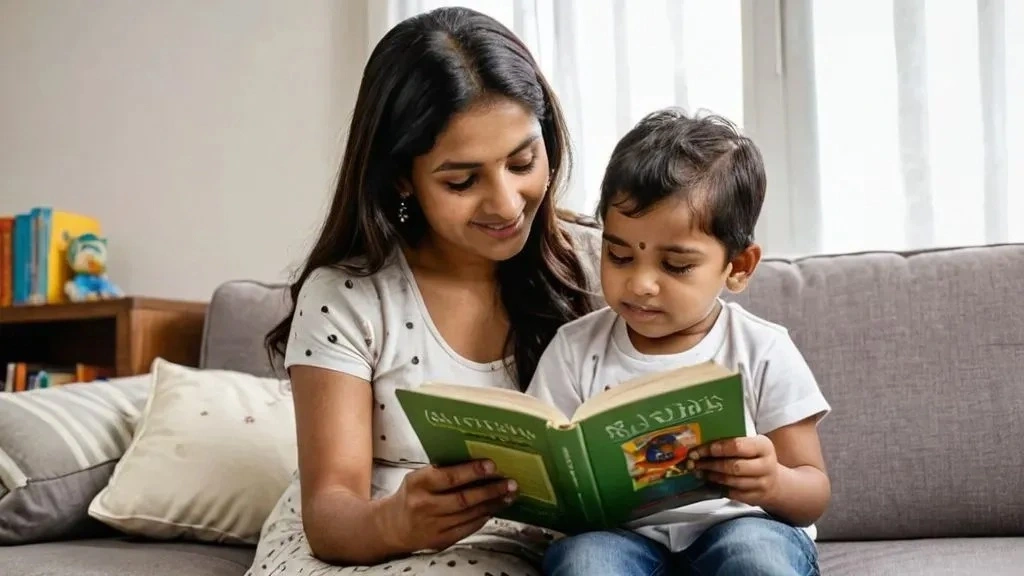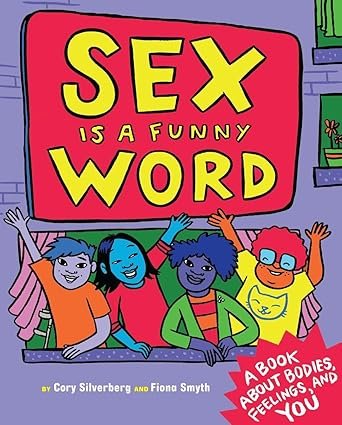Introduction:

Sex, a topic often shrouded in mystery and exaggerated perceptions, plays a vital role in our lives. However, the way we approach and discuss sex can sometimes lead to misconceptions and problems.
In this blog, we’ll explore why sex is overrated, how it impacts us, and why sex education is crucial in today’s world. Let’s talk about sex.
Exploring Key Concept
1. It’s a Natural Thing:
Sex is a natural and fundamental aspect of human life.
It’s a biological process that’s essential for reproduction and can also contribute to emotional intimacy and pleasure in relationships. However, society’s sensationalized portrayal often leads to misconceptions and unrealistic expectations.
2. Why sex is overrated:
a. Communication Barriers:
One of the reasons why sex can be overrated is the presence of communication barriers.
In many societies, discussing sex openly and honestly can be challenging due to cultural taboos, personal discomfort, or lack of education. This leads to misconceptions, unmet expectations, and difficulties in expressing needs and desires.
Poor communication can make it difficult for individuals to navigate sexual experiences. This often leads to unrealistic expectations, dissatisfaction, misunderstandings, and conflict in relationships. To address this, it’s crucial to overcome communication barriers. Open and respectful dialogue about sex helps promote healthier attitudes and experiences.
b. Not Proper Guidance:
Sex is often overrated due to a lack of proper guidance and education, especially among young adults. Many young people lack knowledge about consent, safe practices, and sexual health.
Without trusted guidance from parents, educators, or healthcare professionals, they turn to peers or media for information. As a result, misconceptions and unrealistic expectations about sex arise.
This lack of guidance can contribute to feelings of confusion, anxiety, and dissatisfaction, reinforcing the idea that sex is overrated or disappointing.
c. Misinformation from Inappropriate Sources:
Misinformation from inappropriate sources further contributes to the overrating of sex. The widespread availability of online content, such as pornography and sensationalized media, exposes individuals to unrealistic portrayals of sex. These portrayals often promote harmful ideals, stereotypes, and practices. Such misinformation distorts perceptions of healthy and fulfilling sexual experiences. This can lead to pressure to meet unrealistic standards, dissatisfaction, and confusion about personal desires and preferences.
Promoting critical thinking, media literacy, and access to accurate sexual information is essential in combating misinformation and promoting healthier attitudes towards sex.
d. Media Influence:
The media plays a significant role in shaping societal perceptions and attitudes toward sex, often portraying it as glamorous, exciting, and essential. Movies, TV shows, advertisements, and other media platforms frequently depict idealized versions of sex that may not reflect reality.
Media influence often creates unrealistic expectations about sex, portraying it as always passionate, spontaneous, and flawless. These portrayals clash with real-life experiences, leading to feelings of disappointment and inadequacy. This gap can make individuals feel dissatisfied. It may also contribute to the belief that sex is overrated.
Media often emphasizes the physical aspects of sex, overlooking the value of emotional intimacy and communication in healthy relationships. This skewed focus can shape unrealistic attitudes toward sex. Promoting more diverse and realistic representations is essential. Doing so fosters healthier perspectives and encourages positive sexual experiences.
e. Social Stigma:
Social stigma surrounding sex, particularly topics such as sexuality, sexual orientation, and sexual health, can contribute to its overrating.
Stigmatizing attitudes and discriminatory practices can create barriers to accessing information, services, and support related to sex, leading to feelings of shame, secrecy, and reluctance to seek help or discuss sexual issues openly.
This can perpetuate misconceptions, reinforce harmful stereotypes, and contribute to the marginalization of certain groups, hindering efforts to promote sexual health and well-being for all individuals.
f. Lack of Sex Education:

The lack of comprehensive sex education contributes to the overrating of sex by leaving individuals uninformed or misinformed about important aspects of sexual health, consent, and pleasure.
Sex education in many schools is often inadequate, biased, or entirely absent. This forces young people to rely on incomplete information from peers or unreliable sources. Without a solid understanding of safe practices and boundaries, they may face challenges in sexual relationships. Teaching communication skills is essential to help them navigate these experiences confidently and responsibly.
A lack of proper education often results in misconceptions, anxiety, and negative experiences with sex. These factors can reinforce the belief that sex is overrated or overly challenging. Comprehensive sexual education is the solution. Inclusive, evidence-based, and age-appropriate teaching empowers individuals to make informed choices and develop healthier attitudes toward sex.
g. Religious and Cultural Influences:
Cultural and religious influences can also contribute to the overrating of sex by imposing norms, values, and expectations that may not align with individuals’ needs and preferences.
Cultural expectations around virginity, gender roles, and marital status often impose pressure and judgment on sexual behavior. This can lead individuals to conform to rigid standards or feel guilt about their desires.
Cultural taboos, gender roles, and beliefs about sexuality can create barriers to open communication, restrict sexual expression, and perpetuate harmful stereotypes and practices. Similarly, religious teachings and doctrines may impose restrictions, shame, or guilt around sex, leading to conflicted attitudes and behaviors. Religious teachings may also emphasize abstinence, purity, or specific guidelines for sexual conduct, which can conflict with personal values or desires.
To address this, promoting cultural sensitivity and respect for diverse beliefs is crucial. Inclusive approaches to sexuality help foster healthier and more accepting perspectives.
3. Problems Due to Overrating the Topic:
Certainly, here are detailed paragraphs for each point on the problems that occur due to treating sex as an overrated issue rather than a normal or natural thing:
a. Misinformation:
Treating sex as an overrated issue can contribute to misinformation about sexual health, consent, and pleasure.
When sex is stigmatized or considered taboo, people may be less likely to seek out accurate information from reliable sources.
Such pressures can create misconceptions, myths, and harmful beliefs about sex. These misunderstandings may increase the risk of unsafe practices, unintended pregnancies, or sexually transmitted infections (STIs). Misinformation also fosters shame or guilt around sexual desires and behaviors. This can hinder healthy exploration and open communication about sex.
b. Unrealistic Expectations:
Viewing sex as overrated can lead to unrealistic expectations about sexual experiences and relationships.
When sex is portrayed as something extraordinary or elusive, individuals may develop unrealistic ideals about what sex should be like, expecting constant excitement, passion, and perfection.
This can create pressure to perform or live up to unrealistic standards, leading to feelings of inadequacy, disappointment, or dissatisfaction when reality doesn’t match these expectations. Unrealistic expectations can strain relationships, hinder intimacy, and contribute to negative attitudes toward sex.
c. Stigmatization:
Treating sex as overrated can perpetuate stigma and shame surrounding sexual expression, desires, and identities.
Viewing sex as excessive or taboo often causes individuals to feel ashamed or embarrassed about their desires or experiences. This stigma can lead to secrecy, repression, or denial of sexuality. As a result, open and honest communication about sexual needs and boundaries becomes difficult.
Stigmatization can also contribute to discrimination, judgment, or marginalization of individuals based on their sexual orientation, gender identity, or sexual practices, creating barriers to acceptance and inclusivity.
d. Communication Barriers:

Overrating sex can create communication barriers within intimate relationships, as individuals may struggle to discuss their sexual desires, boundaries, and concerns openly.
When sex is treated as a sensitive or taboo topic, partners may avoid important conversations about consent, pleasure, and mutual satisfaction. This lack of communication can lead to misunderstandings, unmet needs, and conflicts within relationships.
Effective communication is essential for building trust, intimacy, and mutual understanding in sexual relationships, and treating sex as overrated can hinder these communication dynamics.
e. Gender Stereotypes:
Treating sex as overrated can reinforce harmful gender stereotypes and expectations regarding sexual behavior and roles.
Viewing sex as excessive or exaggerated can reinforce traditional gender norms about sexual behavior. Men may feel pressured to conform to stereotypes of hypermasculinity or sexual prowess. Meanwhile, women may face expectations of passivity or subservience in sexual encounters.
These stereotypes can limit individual autonomy, expression, and agency in sexual relationships, reinforcing unequal power dynamics and contributing to gender-based discrimination or violence.
f. Potential for Misguidance:
Viewing sex as overrated can create opportunities for misguidance or exploitation, particularly among vulnerable populations.
When sex is sensationalized or misrepresented, individuals become more vulnerable to manipulation, coercion, or misinformation from predatory sources. This can result in harmful experiences, such as being coerced into sexual activities, exposed to exploitative content, or engaging in risky behaviors without proper knowledge or consent.
The potential for misguidance is heightened when sex is viewed through a lens of exaggeration or mystique, rather than as a natural and healthy aspect of human experience that requires informed consent and respect.
4. Solutions for Overcoming the Problems:

Certainly, here are detailed paragraphs for each solution addressing the problems that occur due to treating sex as an overrated issue rather than a normal or natural thing:
a. Comprehensive Sex Education:
Implementing comprehensive sex education programs is essential in addressing the problems stemming from treating sex as overrated.
These programs should provide accurate, age-appropriate information about sexual health, consent, contraception, STIs, and healthy relationships.
By equipping individuals with knowledge and skills related to sexual well-being, comprehensive sex education helps dispel myths, reduce misinformation, and promote responsible sexual behaviors. By educating individuals from a young age about the biological, emotional, and social aspects of sexuality, comprehensive sex education can empower people to make informed decisions, practice safer sex, and foster healthy relationships. It helps dispel myths, reduce stigma, and promote respect for diverse sexual orientations and identities.
It also fosters a positive attitude toward sexuality, promoting self-awareness, informed decision-making, and respectful communication in sexual relationships.
b. Open Dialogue:
Encouraging open and honest dialogue about sex is essential in shifting perceptions from viewing sex as overrated to recognizing it as a normal and natural aspect of human experience.
Parents, educators, and healthcare providers play crucial roles in initiating and facilitating these conversations. Creating safe spaces for discussions about sexual desires, boundaries, consent, and pleasure helps break down communication barriers and promotes a healthier understanding of sex.
Open dialogue also fosters mutual respect, empathy, and empowerment in sexual relationships.
c. Media Literacy:
Promoting media literacy skills is essential in mitigating the negative impact of sensationalized or unrealistic portrayals of sex in media.
By teaching critical thinking and analysis of media messages, individuals can develop a discerning perspective on media representations of sex. Media literacy empowers individuals to question stereotypes, challenge harmful narratives, and differentiate between fantasy and reality in sexual depictions.
This critical approach to media consumption helps reduce the influence of misleading or exaggerated portrayals of sex, promoting a more balanced and informed understanding of sexuality.
d. Empowering Consent:
Emphasizing the importance of consent and autonomy in sexual interactions is fundamental to addressing issues related to the overrating of sex.
Empowering individuals to assert their boundaries, communicate their desires, and respect others’ consent promotes healthy and respectful sexual relationships. Consent education should encompass clear communication, active listening, recognizing nonverbal cues, and understanding the concept of enthusiastic and ongoing consent.
By prioritizing consent as a cornerstone of sexual interactions, we create a culture of respect, safety, and empowerment.
e. Taking Religion and Culture in a Scientific Way:

Approaching discussions about sex, religion, and culture from a scientific and evidence-based perspective can help bridge gaps and reduce stigma.
Acknowledging the diversity of beliefs and values regarding sexuality, while emphasizing accurate information and human rights principles, encourages respectful dialogue and understanding. Integrating scientific knowledge about sexual health, psychology, and relationships with cultural and religious contexts promotes informed decision-making, reduces misconceptions, and fosters acceptance of diverse sexual identities and expressions.
This approach encourages individuals to embrace their sexuality in a way that aligns with their values, beliefs, and personal experiences while respecting the rights and autonomy of others.
Conclusion:
Sex is a natural aspect of life that deserves healthy and open discussions. By breaking down communication barriers, providing proper guidance, and promoting accurate information, we can create a culture that values respect, understanding, and healthy relationships By addressing the reasons for overrating sex, addressing the problems it can create, and implementing solutions for healthy conversations, we can foster a society that embraces sexuality in a positive and respectful manner.
Why This Product Deserves Your Attention
As always, at the end of every blog on sobersextext.com, we’ve recommended products that align with the theme of the post and can help foster a better, more informed perspective on sex and relationships. In this blog, which explores why sex is often an overrated topic and aims to encourage open, honest conversations about it, we recommend two insightful books: The New Sex Bible by Dr. Jessica O’Reilly and Sex Is a Funny Word by Cory Silverberg. The New Sex Bible provides a comprehensive, accessible guide to understanding sexuality, offering valuable knowledge for those who want to explore sex in a healthier, more realistic way. Meanwhile, Sex Is a Funny Word opens the door to engaging, age-appropriate conversations about sex, helping to remove the awkwardness and stigma around the topic. Both books are excellent resources to help demystify sex, challenge societal taboos, and encourage more meaningful, informed discussions.
If you’re curious about why these products deserve your attention, detailed reviews on our partner site, awareandbeware.com, cover their features, benefits, and drawbacks. We invite you to explore the full reviews to see how these products can help foster sensitivity and open conversations around menstruation




Sex is indeed a complex and multifaceted topic that deserves open and honest discussion. I appreciate how this blog highlights the importance of communication and education in shaping healthier attitudes toward sex. It’s true that societal taboos and sensationalism often distort our understanding, leading to unrealistic expectations. However, I wonder if the blog could delve deeper into how we can practically foster these open conversations in everyday life. Do you think schools and parents are doing enough to provide accurate and comprehensive sex education? I also feel that addressing the emotional and psychological aspects of sex, beyond just the physical, could provide a more holistic view. What are your thoughts on balancing the biological and emotional dimensions of sex in these discussions?
Sex is indeed a complex and multifaceted topic that deserves open and honest discussion. It’s refreshing to see a blog addressing the misconceptions and societal pressures surrounding it. I agree that communication barriers and lack of proper education can lead to unrealistic expectations and dissatisfaction. However, do you think the overemphasis on sex in media and culture is the main culprit, or is it more about how we, as individuals, internalize these messages? I also wonder if there’s a way to balance the biological and emotional aspects of sex without making it seem like the ultimate measure of a relationship’s success. What are your thoughts on how we can create a more informed and open dialogue about sex, especially for younger generations? I’d love to hear your perspective on this!
Sex is indeed a complex and multifaceted topic that deserves open and honest discussion. I appreciate how this blog highlights the importance of communication and education in shaping healthier attitudes toward sex. It’s true that societal taboos and sensationalized portrayals often create unrealistic expectations, which can lead to dissatisfaction and confusion. I wonder, though, how we can encourage more open conversations about sex in cultures where it’s still considered taboo. Do you think schools and parents should take a more proactive role in providing accurate information? Also, how can we ensure that the media portrays sex in a more realistic and responsible way? I’d love to hear your thoughts on how we can bridge the gap between perception and reality when it comes to this essential aspect of human life.
Sex is indeed a complex and multifaceted topic that deserves open and honest discussion. I appreciate how this blog highlights the importance of communication and education in shaping healthier attitudes toward sex. It’s true that societal taboos and sensationalized portrayals often create unrealistic expectations, which can lead to dissatisfaction and confusion. I wonder, though, how we can better bridge the gap between cultural norms and the need for open dialogue, especially in more conservative societies. Do you think schools and parents should take a more proactive role in sex education, or is it better to rely on external resources? Also, how can we ensure that the information provided is accurate and inclusive? I’d love to hear your thoughts on how we can collectively work toward normalizing these conversations.
This is an important topic that needs more open discussion. I agree that society often sensationalizes sex, creating unrealistic expectations. The lack of proper education and communication barriers only make things worse. It’s crucial to have honest conversations about consent, safety, and emotional intimacy. I wonder, though, how we can encourage more people to talk about sex without feeling uncomfortable? Do you think schools should play a bigger role in this? Overall, I believe addressing these issues can lead to healthier relationships and attitudes. What’s your take on this?
Sex is indeed a fundamental aspect of life, but I appreciate how this text highlights the societal complexities surrounding it. The emphasis on communication barriers is spot-on—so many people struggle to discuss sex openly due to cultural or personal discomfort. It’s refreshing to see the importance of sex education stressed, as it’s often overlooked despite being crucial for healthy relationships. I wonder, though, how we can better normalize these conversations in everyday life without making them awkward? The point about misinformation from media and peers is so true, but what role do you think influencers or digital platforms should play in shaping a more accurate narrative? Overall, this piece feels like a call to action for more honest dialogue, and I’m curious how others feel about balancing the biological and emotional aspects of sex. Do you think society’s sensationalized portrayal of sex will ever shift to a more realistic one? Would love to hear your thoughts!
Sex is indeed a complex and multifaceted topic that deserves open and honest discussion. It’s refreshing to see someone address the misconceptions and societal pressures surrounding it. I agree that communication barriers and lack of education can lead to unrealistic expectations and dissatisfaction. However, I wonder if the overrating of sex is also fueled by the media’s portrayal of it as the ultimate measure of success or happiness. Do you think society’s obsession with sex overshadows its true purpose and value in relationships? It’s crucial to promote comprehensive sex education to empower individuals with accurate information. What steps do you think we can take to break down these taboos and encourage healthier conversations about sex? I’d love to hear your thoughts on how we can shift the narrative to focus on intimacy, consent, and mutual respect rather than just performance or societal expectations.
Sex is such a complex topic, and you’ve really highlighted how society’s portrayal often distorts our understanding of it. I think the point about communication barriers is so accurate—it’s frustrating how taboo it still is to talk openly about something so fundamental. Why do you think we, as a society, struggle so much with this? I also think sex education is absolutely crucial, but it feels like so many places still fail at providing it properly. Do you think media and peer influence are the biggest culprits in spreading misinformation? Honestly, it’s refreshing to see someone point out how overrated sex can be when approached with unrealistic expectations. How do we start normalizing these conversations without making people uncomfortable? Would love to hear your thoughts!
Sex is undoubtedly a complex and multifaceted topic that shapes our lives in profound ways. While it’s natural and essential, I can’t help but wonder why society often sensationalizes it to the point of creating unrealistic expectations. The emphasis on communication barriers is spot-on—it’s alarming how many people struggle to express their needs or understand consent due to cultural taboos. Sex education is clearly lacking, and it’s frustrating to see young adults turning to unreliable sources for guidance. Do you think we’re doing enough to normalize open conversations about sex? It’s time to break the stigma and focus on providing accurate, respectful information. What’s your take on balancing the biological and emotional aspects of sex? Would love to hear your thoughts!
Sex is indeed a complex and multifaceted topic that plays a significant role in our lives. It’s interesting how society’s portrayal often skews perceptions, leading to unrealistic expectations. Open and honest communication about sex is crucial, yet it’s often hindered by cultural taboos and personal discomfort. This can create misunderstandings and dissatisfaction in relationships. Proper sex education is essential to dispel myths and promote healthier attitudes. Addressing communication barriers can help individuals navigate their sexual experiences more effectively. Why do you think society still struggles with open discussions about sex despite its importance in our lives?
Sex is undeniably a natural part of life, yet the way it’s portrayed often creates more confusion than clarity. I’ve noticed how societal taboos around discussing sex openly can lead to unrealistic expectations and even dissatisfaction in relationships. It’s refreshing to see someone emphasize the importance of communication and education in this context—something that’s often overlooked. But do you think the overreliance on media for sexual education is the main culprit, or is it the lack of initiative from parents and educators to guide young people? I also wonder how we can break these communication barriers more effectively—should schools take a more proactive role, or is it up to individuals to seek out reliable information? Lastly, do you believe that reducing the sensationalism around sex in media could help create a healthier narrative? This topic feels so layered, and I’d love to hear more about your thoughts on where we should focus our efforts.